September 23-27, 2024, Warsaw, Poland
Workshop Description
This workshop will review the strategies for using hydrodynamic and thermodynamic analytical methods to characterize biological macromolecules and their interactions in solution. We will discuss theoretical and practical aspects of sedimentation equilibrium and sedimentation velocity analytical ultracentrifugation (AUC), dynamic light scattering (DLS), isothermal titration calorimetry (ITC), surface plasmon resonance (SPR), and mass photometry (MP).
This week-long workshop will start on Monday, September 23rd, at 8:30 AM and end on Friday, September 27th, at 5 PM. We will provide an introduction to the experimental aspects of AUC, DLS, and ITC, including the operation of the instruments, choice of buffers, and the experimental design appropriate for the system under study. This workshop has a strong focus on AUC, and topics such as the assembly of the AUC cells, the operation of the XLA/I analytical ultracentrifuge, as well as advanced applications of AUC to the study of interacting and non-interacting systems will be discussed in detail. Over the course of the workshop, the theory, data analysis, and experimental strategy of other biophysical methods will also be discussed. These lectures will be accompanied by practical computer exercises with the SEDFIT and SEDPHAT data analysis software.
Participants’ presentations of their systems of interest and an informal discussion of their data will be an integral part of the workshop.
Registration is now open
Registration deadline: June 30, 2024.
Target Audience
This workshop is aimed at researchers with at least basic experience in the applications of AUC, DLS, ITC, SPR/BLI, MP, and/or fluorescence techniques for the characterization of biomacromolecules.
Faculty
- Chad Brautigam, PhD
Department of Biophysics, UTSW Medical Center, Dallas, Texas
- Rodolfo Ghirlando, PhD
Laboratory of Molecular Biology, NIDDK, NIH
- Grzegorz Piszczek, PhD
Biophysics Core, NHLBI, NIH
- Peter Schuck, PhD
Laboratory of Dynamics of Macromolecular Assembly, NIBIB, NIH
- Huaying Zhao, PhD
Laboratory of Dynamics of Macromolecular Assembly, NIBIB, NIH
The program of the workshop will be identical to the program of the workshop taking place in May in National Institutes of Health, Bethesda, MD, USA.
Workshop Organizing Committee
Roman Szczepanowski, IIMCB
Beata Wielgus-Kutrowska, University of Warsaw
Krzysztof Skowronek, IIMCB
